News
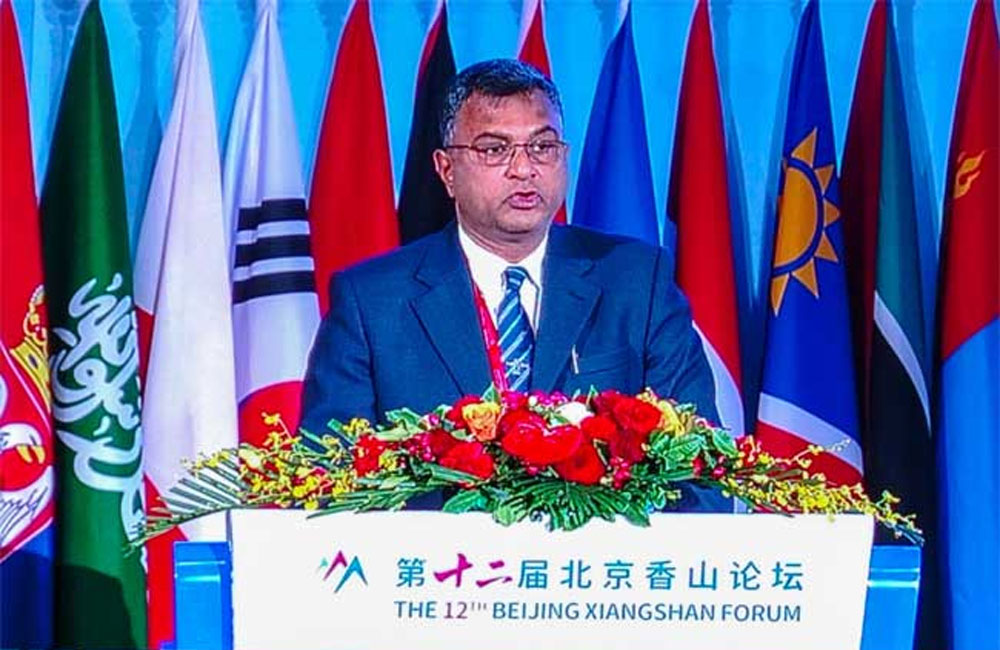
Sri Lanka Defence Secretary Highlights the Importance of Regional Dialogue and China-Sri Lanka Cooperation at the 12th Beijing Xiangshan Forum
Defence Secretary Air Vice Marshal Sampath Thuyacontha (Retd), addressing the high profile gathering at the 12th Beijing Xiangshan Forum in China, emphasized the significance of collective dialogue, regional cooperation, and mutual respect in addressing global and regional security challenges.
He said, “We should take seriously the legitimate security concerns of every country and promote peaceful settlement of differences and disputes among countries through dialogue and consultation. We need to continue pursuing open regionalism and steadily advance regional economic integration.”
The 12th Beijing Xiangtan Forum is held from 17 - 19 (Sep), at the Beijing International Convention Center in Beijing. Speaking at the Fourth plenary session on the topic of "Building regional peace through dialog and consultation" on (19), the Defence Secretary expressed Sri Lanka’s appreciation to the Chinese government, for the invitation to this high-level security and defence forum, which has become a vital platform for fostering dialogue and promoting peace in the Asia-Pacific and beyond.
Quoting President Xi Jinping’s call to respect legitimate security concerns of all nations and resolve disputes through consultation, the Defence Secretary noted that true peace is achieved not merely through the absence of conflict but through dialogue, understanding, and constructive engagement.
Highlighting Sri Lanka’s strategic location, he reaffirmed the country’s longstanding commitment to ensuring that the Indian Ocean remains a zone of peace, open to cooperation and free from conflict. “Sri Lanka stands ready to act as a bridge of peace and cooperation, facilitating connectivity, trade, and cultural dialogue between East and West” he said.
The Defence Secretary further stressed the enduring friendship between Sri Lanka and China, recalling over seven decades of bilateral ties built on trust, mutual respect, and partnership. He acknowledged China’s steadfast support in safeguarding Sri Lanka’s sovereignty and stability, as well as its contribution to military training and infrastructure development.
Reaffirming Sri Lanka’s commitment to regional stability, the Defence Secretary said, “Differences are inevitable, but they must never lead to confrontation. Dialogue and consultation are the only sustainable path forward” and also called for regional initiatives such as the Belt and Road Initiative and ASEAN’s Outlook on the Indo-Pacific to complement one another.
“We must solve our problems among ourselves through dialogue and consultation, guided by equality and mutual respect. This is the spirit we carry forward from the Beijing Xiangshan Forum towards a future where peace triumphs over conflict” he said.
The Beijing Xiangshan Forum, co-hosted by the China Association of Military Science (CAMS) and the China Institute of International Strategic Studies (CIISS), is one of Asia-Pacific’s most influential platforms for international security and defence dialogue. A large number of high profile defence heads and delegates are attending this forum.
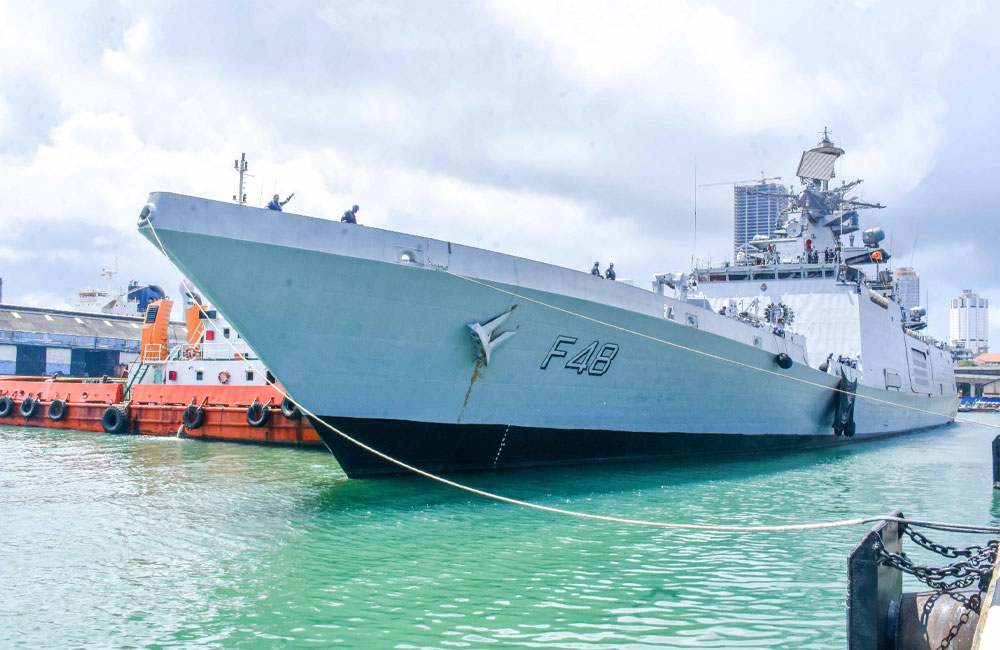
Indian Naval Ship Arrives at Colombo Port
The Indian Navy ship ‘INS SATPURA’ has arrived at the Colombo Port.
The Navy said the ship reached Sri Lanka yesterday (20) for replenishment and service needs.
It was welcomed by the Sri Lanka Navy according to naval traditions.
‘INS SATPURA’ is a frigate, 142.5 meters long, with a crew of 403.

Mysterious Death of Young Man Reported
The body of a 21-year-old youth was found near a culvert in Yakalla, Ibbagamuwa, by Gokarella Police.
He was a resident of Pabuluwa, Ibbagamuwa.
Police said a complaint was made this morning that he had been missing since last night.
The young man, who worked at a livestock farm, had told his family he would return home after work, but after 10 p.m. there was no news of him.
Gokarella Police are carrying out further investigations.
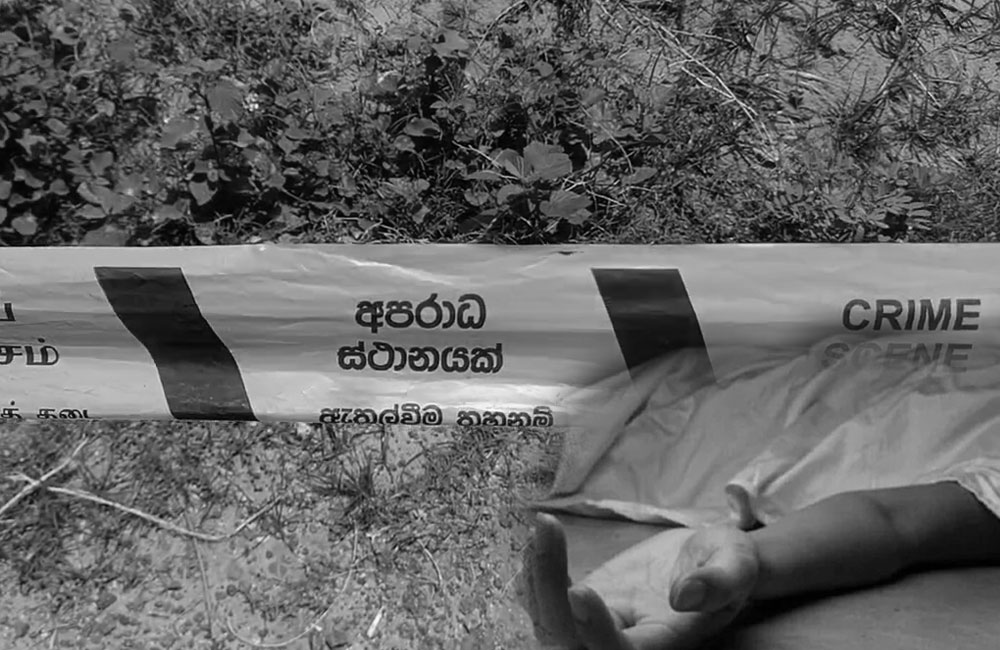
A Prolonged Dispute Claims the Life of a Young Man
A young man has been hacked to death with a sharp weapon in the Balawathgama area under the Hemmathagama Police Division.
Police said the incident took place last night (20).
The victim was a 21-year-old resident of Dewanagala.
Investigations have revealed that the killing was the result of a personal dispute.
The body has been placed at the Hemmathagama Hospital morgue, while a 23-year-old suspect connected to the incident has been arrested.
Hemmathagama Police are conducting further investigations.

‘Potta Amila’ Arrested with Large Stock of Drugs and Pills
‘Potta Amila,’ a member of an organized crime gang and a drug trafficker, along with three close associates, was arrested today (21) afternoon by the Moragahahena Police.
Police seized 5,300 drug tablets and 15,000 mg of crystal meth (Ice) worth nearly Rs. 1 million, along with three mobile phones used for the trade.
The arrests were made following information received by the police intelligence and special task force officers about a suspect involved in Ice distribution in the Gonapola Kumbukawatta area. When searched, he was found in possession of 2,200 mg of Ice. During questioning, he revealed that the drugs had been given to him by ‘Potta Amila’ for distribution.
Later, police raided Amila’s house and arrested him along with two others. Police recovered 10,100 mg of Ice and 5,000 drug tablets from Amila, and 2,100 mg of Ice plus 300 drug tablets from the other two suspects.
According to police, Amila is a close associate of underworld gang members ‘Mole Kasun’ and ‘Manna Ramesh,’ who are currently in Boossa Prison. He had also lost his eyesight some years ago following an acid attack during a past dispute.
All four suspects will be produced before the Horana Magistrate’s Court, while further investigations are ongoing by Moragahahena Police.

Rainy and windy conditions to continue
The Meteorology Department says that the current rainy and windy conditions in the country are expected to continue.
The department said that occasional showers may occur in the Western and Sabaragamuwa provinces, as well as in the Galle, Matara, Kandy, and Nuwara Eliya districts. Some areas may experience heavy rainfall of around 75 mm.
Several rain showers are also expected in the Northern and North Western provinces.
In the Uva Province and in the districts of Ampara and Madakalpuwa, light or thundery showers are expected after around 2:00 PM.
In the western slopes of the central hills, as well as in the Central, North-Central, and North-Western provinces, and in the Trincomalee and Hambantota districts, strong winds of about 30–40 km/h may occur at times.
The department warns the public to take necessary precautions against possible lightning and temporary strong winds that may accompany thundery showers.
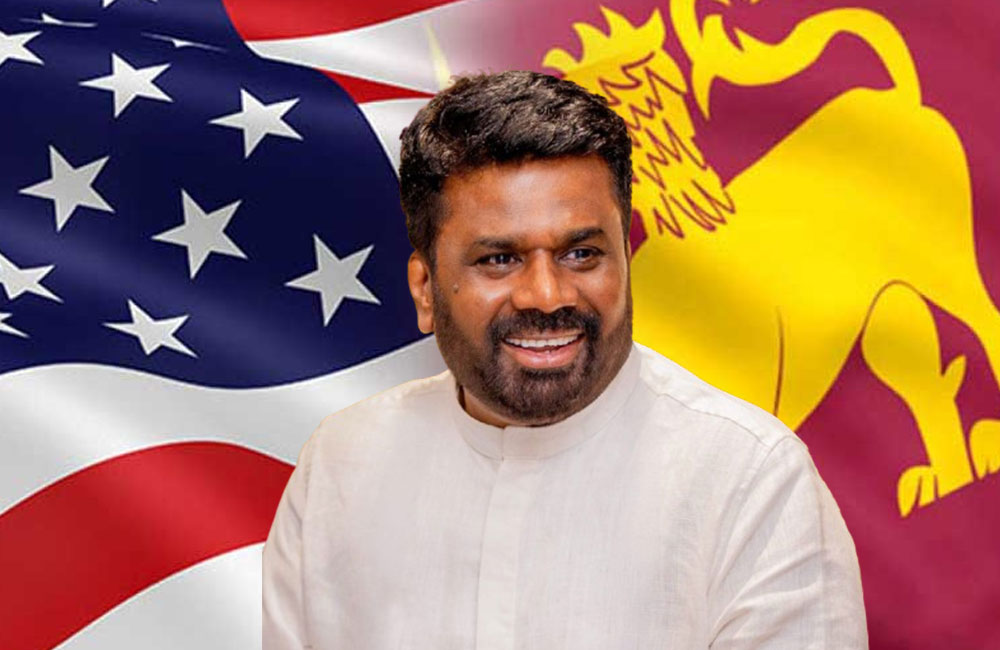
President to Leave for the United States Tomorrow
President Anura Kumara Dissanayake is scheduled to leave for the United States tomorrow (22) night.
During the visit, he will attend the 80th session of the United Nations General Assembly and is expected to address the Assembly on Wednesday (24) at 3:15 p.m. New York time, the President’s Media Division said.
He is also set to hold bilateral talks with the UN Secretary-General and several world leaders.
In addition, the President will meet with Sri Lankans living in the United States.
Foreign Affairs, Foreign Employment, and Tourism Minister Vijitha Herath will accompany the President on this visit.

Mysterious Death: Woman’s Body Discovered
The Kaluwanchikudy Police have launched an investigation after receiving a report that a woman was found dead in her home in the Kottekallar area. The deceased, a 57-year-old resident, was living alone in her house, according to initial investigations.
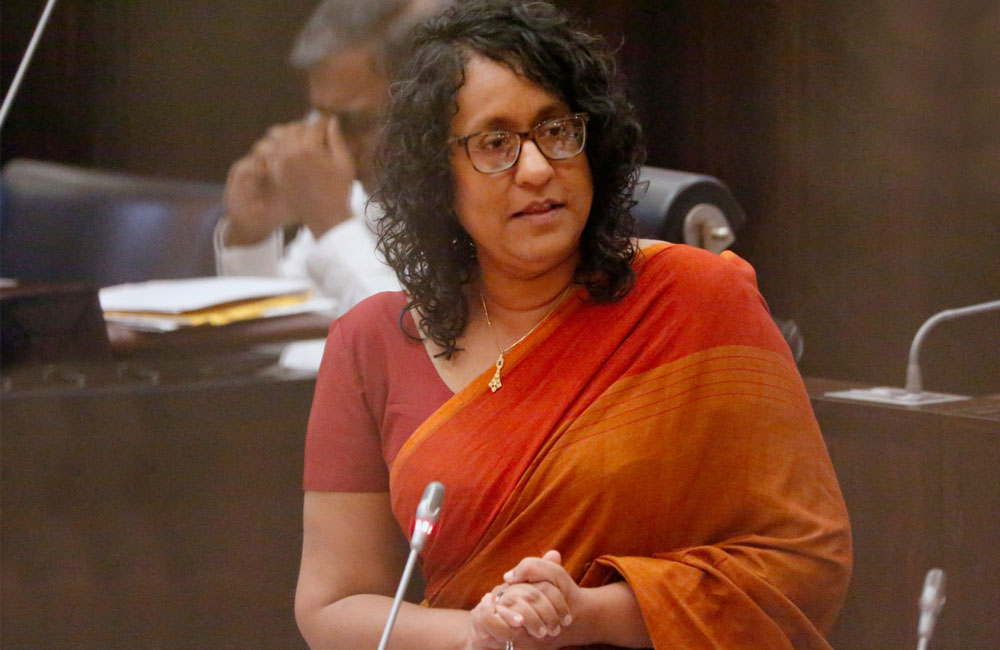
No Reductions Ahead: PM Defends Religion and Aesthetic Subjects
Prime Minister Dr. Harini Amarasuriya has assured that the current government will not reduce or remove religious education or aesthetic subjects in any form.
She gave this assurance during a meeting with members of the Buddhist Affairs Task Force, where the content of the new Buddhism textbook under the revised curriculum was also discussed.
The Prime Minister explained that, under the education reforms planned for 2026, the first lesson of the Grade 6 curriculum will provide students with a basic understanding of all major religions. After this introduction, students will be able to study their own religion in greater depth.
The discussion also highlighted the shortage of Buddhism teachers in schools. The Prime Minister stated that a proper recruitment and deployment plan will be introduced to address this issue and ensure sufficient teacher availability.

This Year: 1,843 Fatal Crashes Claim 1,960 Lives
A total of 1,960 people have died in road accidents so far this year, police said. According to reports, these deaths occurred from January 1 to September 17, across the country. During this period, 1,843 fatal accidents were recorded.
In addition, police said there have been 3,708 serious accidents reported this year.

Drug shortage stems from procurement issues, not financial constraints – Health Minister
Health Minister Nalinda Jayatissa has stated that the prevailing shortage of medicines within the country is not due to financial constraints.
Speaking at a ceremony in Ampara, the Minister stated that the current shortage of medicines has arisen due to procurement-related issues.
Accordingly, procurement processes for importing medicines have already commenced, with supplies expected to arrive after November, Minister Nalinda said.
Commenting further, the Minister noted that certain medicines are currently unavailable in the private sector, including pharmacies.
“We do not allow registration based on unlimited prices during the drug registration process. A specific price range has been set, taking into account the prevailing market situation in South Asian countries. Those unwilling to comply with this pricing structure have chosen not to supply medicines,” he said.
Health Minister further added that the State Pharmaceuticals Corporation (SPC) has already been tasked with procurement, with approximately 80–85% of the process completed.
Commenting on broader economic impacts, Minister Nalinda highlighted that the suspension of several development projects in past years has placed an additional financial burden on the treasury.
“There are 17 projects in Sri Lanka that are to be restarted after being halted. These projects have already cost the treasury Rs. 59 billion, even though they were initially scheduled to be completed by 2018, 2020, or 2022 which will cost Rs. 29 billion,” the Minister stated.
(adaderana.lk)
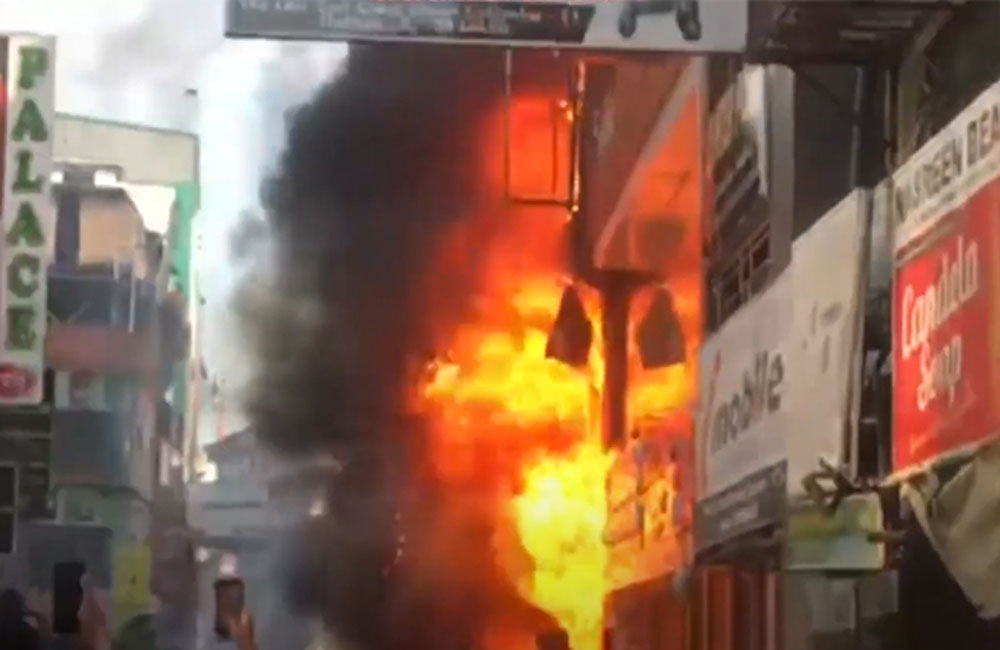
Fire Breaks Out In Pettah Building
A fire has reportedly broken out in a shop on the third floor of a building at First Cross Street in Pettah.
The Colombo Fire Brigade said that 12 fire-trucks have been deployed so far to douse the flames and that firefighters are currently attempting to control the fire from spreading.
Meanwhile, the Sri Lanka Air Force (SLAF) Fire Service Unit has also deployed two fire trucks to the location to assist in fire fighting operations.
The SLAF Spokesman said that a Bell 212 helicopter has been deployed to assist in extinguishing the fire at First Cross Street in Pettah.
Page 93 of 664